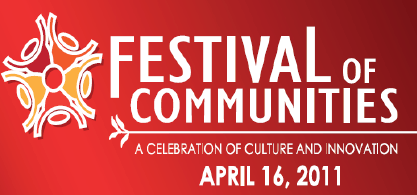Location
University of Nevada, Las Vegas
Start Date
16-4-2011 2:00 PM
End Date
16-4-2011 3:30 PM
Description
Most people think that musical knowledge is exclusive to trained musicians. Actually, casual music listeners have implicit knowledge of important structural aspects of music, such as tonality. Tonality contributes to the feeling of anticipation one would experience when hearing someone sing “do re mi faso la ti” without singing the final “do”. Knowledge of tonality may be learned through the statistics of music (Krumhansl, 1990). However, learning mechanisms have rarely been investigated experimentally (Creel et al., 2002). Artificial grammar learning experiments have shown that listeners can acquire highly structured knowledge such as syllable co-occurrence and language syntax through passive exposure. (Saffranet al.,1996; Saffran, 2001). Two experiments used an artificial grammar learning paradigm to explore mechanisms by which listeners might learn about tonality. Experiment 1 investigated whether listeners could infer tonal prominence from the frequency of pitch occurrence. Experiment 2 investigated whether listeners could infer tonal prominence from contingencies between pitch and metrical position.
Keywords
Experiential learning; Music – Study and teaching; Tonality
Disciplines
Cognition and Perception | Cognitive Psychology | Music Theory
Language
English
Learning mechanisms for acquiring knowledge of tonality in music
University of Nevada, Las Vegas
Most people think that musical knowledge is exclusive to trained musicians. Actually, casual music listeners have implicit knowledge of important structural aspects of music, such as tonality. Tonality contributes to the feeling of anticipation one would experience when hearing someone sing “do re mi faso la ti” without singing the final “do”. Knowledge of tonality may be learned through the statistics of music (Krumhansl, 1990). However, learning mechanisms have rarely been investigated experimentally (Creel et al., 2002). Artificial grammar learning experiments have shown that listeners can acquire highly structured knowledge such as syllable co-occurrence and language syntax through passive exposure. (Saffranet al.,1996; Saffran, 2001). Two experiments used an artificial grammar learning paradigm to explore mechanisms by which listeners might learn about tonality. Experiment 1 investigated whether listeners could infer tonal prominence from the frequency of pitch occurrence. Experiment 2 investigated whether listeners could infer tonal prominence from contingencies between pitch and metrical position.

